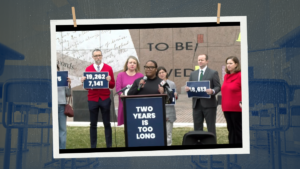Source: WRAL
Residents of Dare County are facing a crisis that could threaten their coastal communities. According to county leaders, they have run out of funding to protect their communities from beach erosion and state law is holding them back from finding potential solutions.
The Outer Banks are especially vulnerable to the effects of climate change due to their geography. The barrier islands are less than three feet above sea level and are surrounded by the Atlantic Ocean, putting them at risk from ever-increasing flooding and erosion.
“Our hands are tied because of the money,” Dare County Commissioner Danny Couch told WRAL News. “We don’t have a lot of options, we have an option at this point, and it’s beach nourishment.” According to North Carolina law, beach nourishment is the only way they can build up their oceanfront which is a process of collecting sand from elsewhere and depositing it on the eroded shoreline.
Beach nourishment is a costly process and Dare County doesn’t have the estimated $30 million needed to replenish the beach in Rodanthe, where last year two homes were swept into the ocean. To make matters worse, North Carolina state law effectively bans them from even studying alternative tools to build up oceanfront beaches, such as energy-attenuating devices that have been implemented in other countries.
County leaders are urging the state and federal governments to act quickly to provide funding and a legal path to study alternatives for their communities. Without it, they fear their beach communities may not survive the effects of climate change.
“It’s reaching a crisis point here,” Couch said. “I am a betting man, and I’m going to bet that the first six months are not going to be good of 2023 here on the Outer Banks.”




